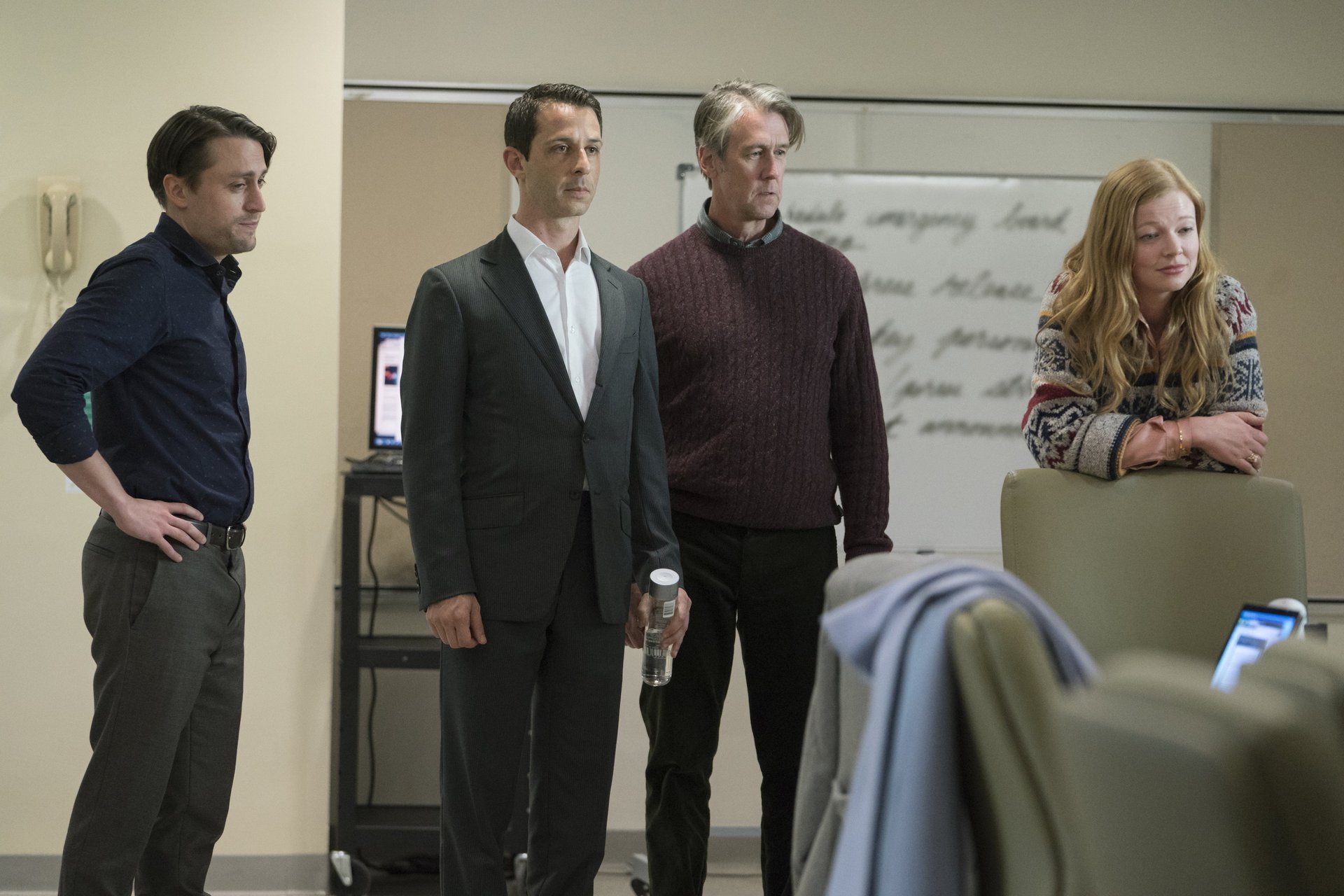On HBO’s “Succession,” awful rich people make for awfully rich TV
Rich people don’t eat at California Pizza Kitchen. That’s one of the first lessons offered in the new HBO drama Succession, which premiers Sunday night (June 3). A young member of a global media dynasty, fresh off his first mammoth paycheck for a job he didn’t earn, suggests celebrating with a meal at the chain restaurant. As an outsider who hasn’t spent much time around his relatives, this, for him, is fine dining. But his boss, a wealthy executive, quickly shows the young man the error of his ways. “I’ll show you how to be rich,” he says.


Rich people don’t eat at California Pizza Kitchen. That’s one of the first lessons offered in the new HBO drama Succession, which premiers Sunday night (June 3). A young member of a global media dynasty, fresh off his first mammoth paycheck for a job he didn’t earn, suggests celebrating with a meal at the chain restaurant. As an outsider who hasn’t spent much time around his relatives, this, for him, is fine dining. But his boss, a wealthy executive, quickly shows the young man the error of his ways. “I’ll show you how to be rich,” he says.
The executive brings his cousin to an unnamed French pop-up restaurant, where the menu doesn’t have prices. They each eat an entire illegal songbird, including the head.
Loosely inspired by Rupert Murdoch and other aging media titans, Succession follows Logan Roy, the head of the fictional media empire Waystar-Royco, and the ambitious, deeply privileged younger relatives vying for control of it. There’s Kendall, a recovering addict and the heir apparent son; Siobhan, a political consultant and Logan’s only daughter; Roman, the youngest son, a wisecracker; and Connor, the mercurial eldest son from a previous marriage who lives in New Mexico with his “girlfriend,” a sex worker whose theater ambitions he’s financing in return for companionship.
All of these people, including and especially Logan, are broken. Wealth has ruined them, distanced them from life, and made them irredeemable. Succession—created by Jesse Armstrong, a writer on the British political satire The Thick of It, and produced by The Big Short director Adam McKay—is partly an indictment of America’s elite 1%. But it’s also so much more than that.
Succession, and the ruthless corporate culture it depicts, exists at the confluence of several critical American narratives: income inequality, media consolidation, “fake news,” even the #MeToo movement. The show is not just an indictment of the white American elite, it’s an indictment of America as a whole—its immovable institutions and its faltering leadership at a time of great global change. Logan and his family constantly belittle normal Americans even as they fail to realize (some of them, anyway) that the company is doomed.
Waystar-Royco is bigger than Murdoch’s News Corp and 21st Century Fox. Logan’s firm also includes a telecommunications division, and it owns and operates theme parks around the world. The more accurate real-life comparison for the company might actually be Comcast or Disney.
But the heart of Waystar-Royco, as Logan says at one point, is media: TV, movies, books, newspapers. Information. Entertainment. Logan wants to control it all. “Why shouldn’t we do all the news?” Logan says, after informing his children he wants to buy a number of local TV stations—a transparently antediluvian move that suggest he’s losing his grip on things. “Well, Kim Jon pop, that’s not how things work in this country,” Roman replies.
The company already owns three cable news networks, implied to serve a predominantly conservative audience as Fox News does in real life. Kendall tries to buy a hot new media startup to put the company in a better position for the future, but the writing is already on the wall. Lawrence, the young Asian CEO of Kendall’s target, correctly calls the Roy family a bunch of “bloated dinosaurs” and “Neanderthals,” eventually accepting Kendall’s offer in part, we think, to eventually supplant him at Waystar.
Like the late, disgraced Fox News CEO Roger Ailes, Logan is not an honest media purveyor, but rather a ”truth teller to presidents.” He acquires power by cozying up to those with more of it. He’s secretly run up a massive debt, and has no plans for the future. “Where’s the vision? Where’s the growth?” Kendall asks his father, who’s recovering from a stroke, and has become unfit to continue leading the company—if he ever was to begin with.

Logan’s secret debt is another metaphor Succession wryly plays with. These people have all the money in the world, but their inner lives are bankrupt. Money has not only failed to provide them happiness, but it consistently prevents them from attaining it. In fact, the family members appear to be at their most satisfied in small, rare moments of rebellion against the Roy name and what it stands for.
So how is a show about terrible rich people so engrossing? As Vanity Fair critic Richard Lawson put it, “Succession has a sneaky menace to it,” one that pokes and prods at our universal reverence for wealth and power. No matter how much we might hate the Roys, there’s a part of us that’s curious about these lives—how rich people really conduct themselves behind-the-scenes, what it might be like to live one for a day—in spite of our better instincts.
That the Roys are generally bad people doesn’t mean they’re not interesting ones. And occasionally, we see how the cracks in the American capitalistic edifice can form, and how those who exploit it can, if only for a moment, break out of the delusional holds that wealth puts them in. As Roman sees Kendall’s lavish Waystar office for the first time in a long time, he looks around, pauses, and speaks for all of us watching at home: “Look at all this fucking bullshit.”